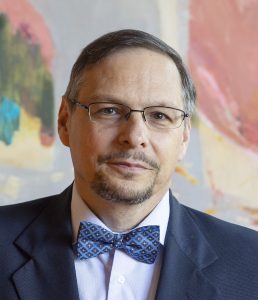Organizers: Asia Pacific Forest Education Coordination Mechanism Executive Office
Asia Forest Research Center, Faculty of Forestry, University of British Columbia
Sponsor: The Asia-Pacific Network for Sustainable Forest Management and Rehabilitation (APFNet)
( 2020-2021)
| Since March, as a result of COVID-19, our world has been locked down and the international research communication has also been interrupted. For the purpose of addressing the Covid-19 induced challenges that we are facing in the regional forestry research system, on behalf of AP-FECM Executive Office and UBC Faculty of Forestry, we are pleased to launch a virtual lecture series on Forestry, Wood and Biomass research to connect the scholars in this region and promote the research collaborations during this challenging time. |
Participants: ~300
I hour (45 minutes’ talk and 15 Q&A)
This lecture series is open for free to all the audience.
Keynote Lecture I
Keynote Speakers: Prof. Orlando Rojas
Title: Recent Advances in the Utilization of Biomass-derived Nanomaterials and Enabling Nanotechnologies for the Future Bioeconomy
Time: Friady, November 20th 2020, at 5:00-6:00 pm Vancouver time (Saturday, November 21st 2020, at 9:00-10:00 am Beijing Time)
Tencent VooV Meeting ID: 703 043 670
Tencent Voov Meeting Address: https://voovmeeting.com/s/m44MQZ2LitNg
Prof. Orlando Rojas Bio:
Prof. Rojas is a Canada Excellence Research Chair in top-ranked University of British Columbia, under a program that supports world‑renowned scientists. In this condition he is the Director of the Bioproducts Institute and shares affiliation with three departments of Chemical and Biological Engineering, Chemistryand Wood Science. Part of his research group (Bio-based Colloids and Materials) also operates in Aalto University, Finland, where he is visiting professor and, earlier, professor in the departments of Bioproducts and Biosystems and Applied Physics (2013), following his tenure as Professor in the Department of Forest Biomaterials in North Carolina State University (NCSU, 2004-2013).
Prof. Rojas joins academician Prof. Lina Zhang as a recipient of the Anselme Payen Award, established by the American Chemical Society in 1962, the highest recognition in the area of cellulose and renewable materials. In addition, Prof. Rojas is an elected as Fellow of the American Chemical Society (2013), the Finnish Academy of Science and Letters (2017) and recipient of the Tappi Nanotechnology Award (2015).
Prof. Rojas was chair of Aalto’s Materials Platform and leads, with the Finnish Research Center (VTT), a national competence center to advance the Finnish materials bioeconomy, the FinnCERES Flagship. He was co-PI of the Academy of Finland‘s Center of Excellence in Molecular Engineering of Biosynthetic Hybrid Materials Research, HYBER. His most recent research grants include the prestigious European Research Commission Advanced Grant (ERC-Advanced) and a Horizon H2020 project, among many others.
During his career he has advised 40 postdoctoral fellows, 55 PhD and 34 MS students. He has also hosted 112 international visiting scholars and professors (2 months to two years). With a h-index of 70 (Google Scholar), he has authored about 410 peer-reviewed papers and a larger number of conference contributions related to the core research, mainly dealing with nanostructures from renewable materials and their utilization in multiphase systems.
Lecture Content
In this webinar Prof. Rojas will first introduce UBC’s BioProducts Institute, an innovative ecosystem of high-impact fundamental and applied research that brings together inter- and multi-disciplinary scientists, engineers, and market and policy experts to unlock the full potential of materials, chemicals and fuels that can be produced from biomass. He will then share the experience with biological systems, especially, structured, hierarchical and nano-scaled building blocks that develop multiple functions. They are best exemplified by nanocelluloses, which display thermo-mechanical and optical properties that are central to the field of biomimicry. Together with nanolignins and other materials produced from renewable resources, such particles are being explored as possible solutions to the future material demands. The interfacial assembly and structuring in water, the natural biosynthesis medium, dictate the opportunity for any potential utilization. Prof. Rojas will summarize their experience in this area, considering fundamental aspects such as the interactions and the assembly at solid/liquid, liquid/liquid and gas/liquid interfaces. Recognizing the importance of these aspects, several examples of advanced materials produced from cellulose, lignin and tannins will be introduced, including those with bioactivity, stimuli-responsiveness and capabilities for energy harvesting.
